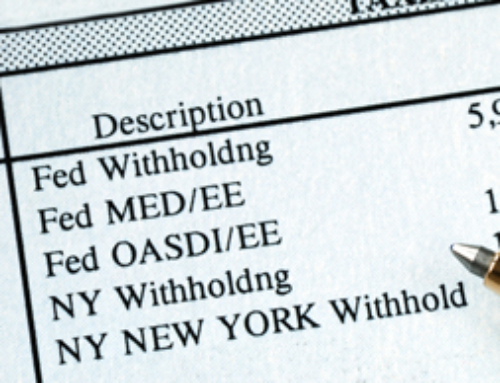 Someone recently wrote to TaxMama in despair and desperation — she couldn’t pay her tax bill and her wages were being garnished.
Someone recently wrote to TaxMama in despair and desperation — she couldn’t pay her tax bill and her wages were being garnished.
She had a long-term tax debt because she hadn’t filed tax returns for two years, and the IRS made up a worst-case tax return. Her husband was disabled and living on Social Security. Doesn’t this break your heart?
She’s not alone. These days, with jobs disappearing, along with homes, many more people are in equally bad financial shape. But there are ways around the tax predicament that this woman, and many others, find themselves in.
What can you do?
- File all your tax returns, including extensions, before the filing deadline.
- If you cannot pay, don’t ignore the problem. DO SOMETHING!
Can’t Pay Your Tax Bill? Expect Tax Penalties, the Penal System, and Punishment
The two biggest causes of hostile IRS action are
- Ignoring IRS notices and letters
- Deliberately defying the IRS
A couple of recent tax acts have finally given the IRS the power to levy large penalties and bring criminal charges against those who thumb their noses at the tax system. The good news is that these powers are not intended to be used against the hapless, dejected taxpayer who is just overwhelmed by the system.
Tax Information Overload! Help!
If you’re in tax trouble and have been ignoring the notices and letters sent to you by the IRS, this is not the time to play the helpless card. This is the time to face your problems and contact the IRS. Respond to the notices you receive.
What do you want to ask the IRS when you do contact them? It all depends on three things:
- The balance due on the notices
- How much you’re presently earning
- Your personal asset balance
If the balance due can be paid off within five years based on your present income level, or by drawing upon your savings or equity, you will have to pay the taxes.
Look at this as if it were a car loan-for the new car you didn’t buy.
There is no way to reduce the balance due. Don’t waste $3,000 on those folks who advertise that they can cut your taxes. They can’t.
To get an installment agreement from the IRS, follow the instructions on the IRS Payment Plan page.
What If You Legitimately Cannot Afford to Pay Your Tax Bill?
There are two ways to go:
- Let me tell you a big secret: You may ask the IRS to suspend collections. Believe it or not, the IRS can do that for you! (It’s called “Code 53.”) The IRS will reopen your case every six to eighteen months, depending on why you’re insolvent.
- You can ask for an Offer in Compromise, using Form 656. This is the “pennies on the dollar” form. Read the instructions and follow them carefully. There’s a checklist and a two-page worksheet telling you exactly what to offer to the IRS. No mystery. It’s right there in the book.
If all else fails? File for tax bankruptcy. Yep. Even some attorneys don’t know you can bankrupt taxes. It’s not easy to do. You may have to wait a year or two after you file your tax returns before the taxes get “ripe.” Yes, you can make your taxes disappear. Legally.
Eva Rosenberg, EA is the publisher of TaxMama.com, where your tax questions are answered. Eva is the author of several books and ebooks, including Small Business Taxes Made Easy. Eva teaches a tax pro course at IRSExams.com.
Read More:
Home Buyer Tax Credit Cash: 7 Things You Need To Know When Filing for the Home Buyer Tax Credit
Six Reasons To Amend Your Tax Return
Class Action Lawsuit Settlement: Good News Or Bad For Your Taxes?






